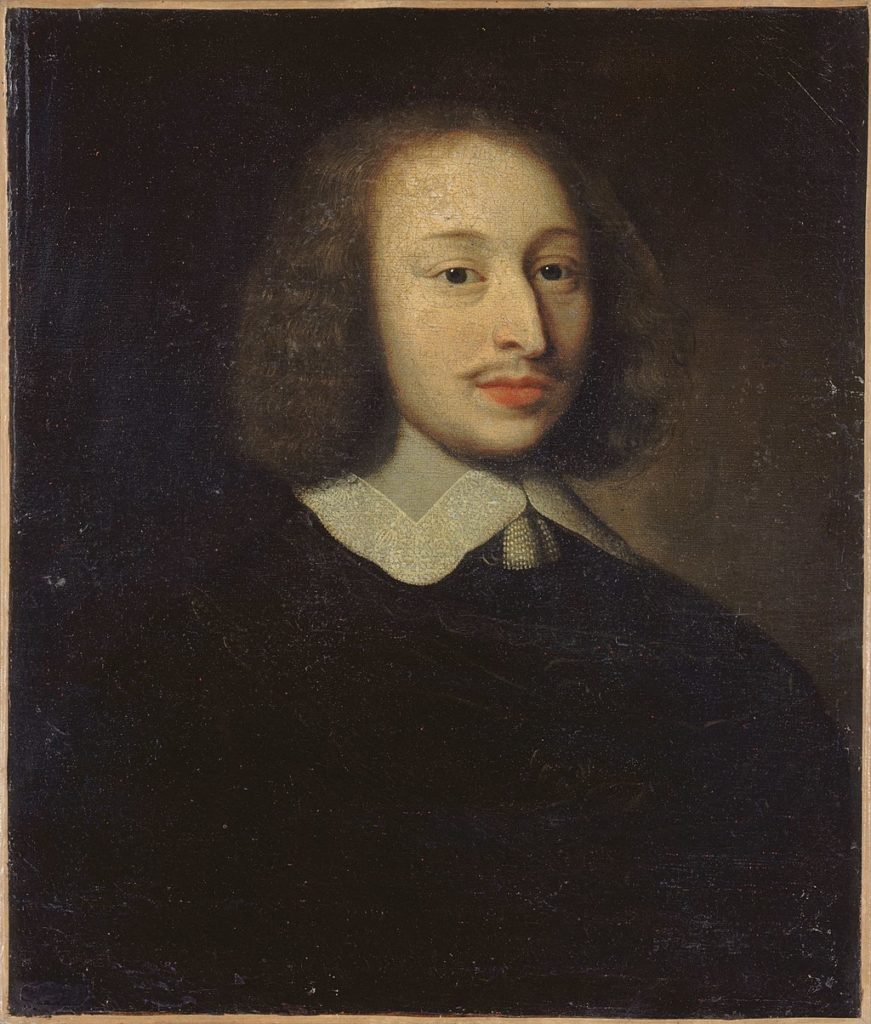“When I consider the short duration of my life, swallowed up in the eternity before and after, the little space which I fill, and even can see, engulfed in the infinite immensity of spaces of which I am ignorant and which know me not, I am frightened… Who has put me here? By whose order and direction have this place and time been allotted to me?”
Here surely is the language of angst, anxiety, the mother tongue of the postmodern age. But it was said 400 years ago by a deeply believing Catholic — Blaise Pascal.
Historian James Hitchcock calls Pascal “the most important Catholic thinker” from the 16th to the 19th century. Pope Francis, in a tribute marking the fourth centenary of his birth in 1623, salutes him as “a tireless seeker of truth.” T.S. Eliot wrote of him in the 1930s, “I know of no religious writer more pertinent to our time.”
Yet Pascal left only two books — one a religious polemic, the other unfinished at the time of his death. Why is he important today?
For one thing, he was a mathematical genius who invented probability theory and created a counting machine that was a precursor of the modern computer. He was also a man of deep spirituality who in 1654 had a mystical experience — the “night of fire” — that profoundly altered his life.
Although probably not himself a Jansenist — the rigorist Catholic movement centered on the Port Royal convent where his sister Jacqueline was a nun — he took up the cudgels in defense of Port Royal in the Provincial Letters, a satirical polemic that shredded the intellectual pretensions of Port Royal’s enemies.
But it is for his “Pensees” (“Thoughts”), published after his death in 1662 at age 39, that Pascal has a permanent place in world literature. He had intended the book as a massive work of apologetics showing the unique excellence of Christianity in general and Catholicism in particular. And although he did not live to write it, his notes and sketches — from multipage drafts to single-sentence aphorisms, all of it written in crystalline French prose — add up to a volume whose argument and plan are clear enough.
The book addresses a fundamental question: What is the meaning of human life? Christian faith, Pascal concludes, “goes mainly to establish these two facts, the corruption of nature and redemption by Jesus Christ.” Faith does not come from reason alone, however, but from reason in conjunction with something much deeper, to which he gives the name “heart.” For Pascal this is not a maxim of sentimentality but a conclusion reached by reflection on observable facts.
“We know truth not only by the reason but also by the heart [by which] we know first principles,” he writes. And again: “The heart has its reasons, which reason does not know. … It is the heart which experiences God.”
Nevertheless, for those who may need an easily grasped argument, Pascal provides his famous “wager” on behalf of belief in God’s existence: “Let us weigh the gain and loss in wagering that God is: If you gain, you gain all; if you lose, you lose nothing. Wager, then, that he is.”
T.S. Eliot concludes his tribute to Pascal: “I can think of no Christian writer, not Newman even, more to be commended to those who doubt, but who have the mind to conceive, and the sensibility to feel … the mystery of life and suffering.” Here is a man for our times as much as, and arguably even more than, his own.

